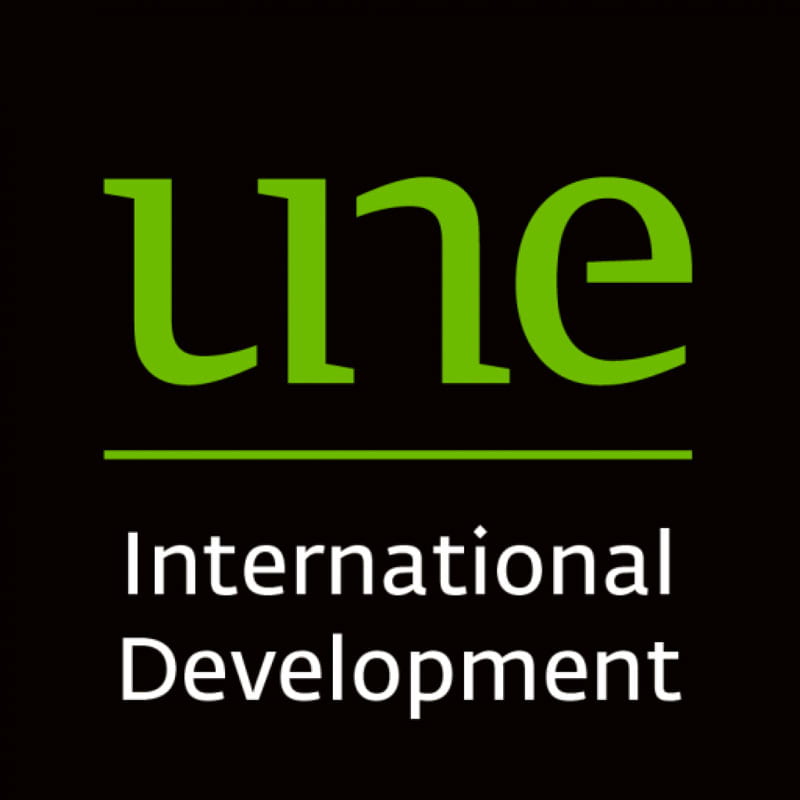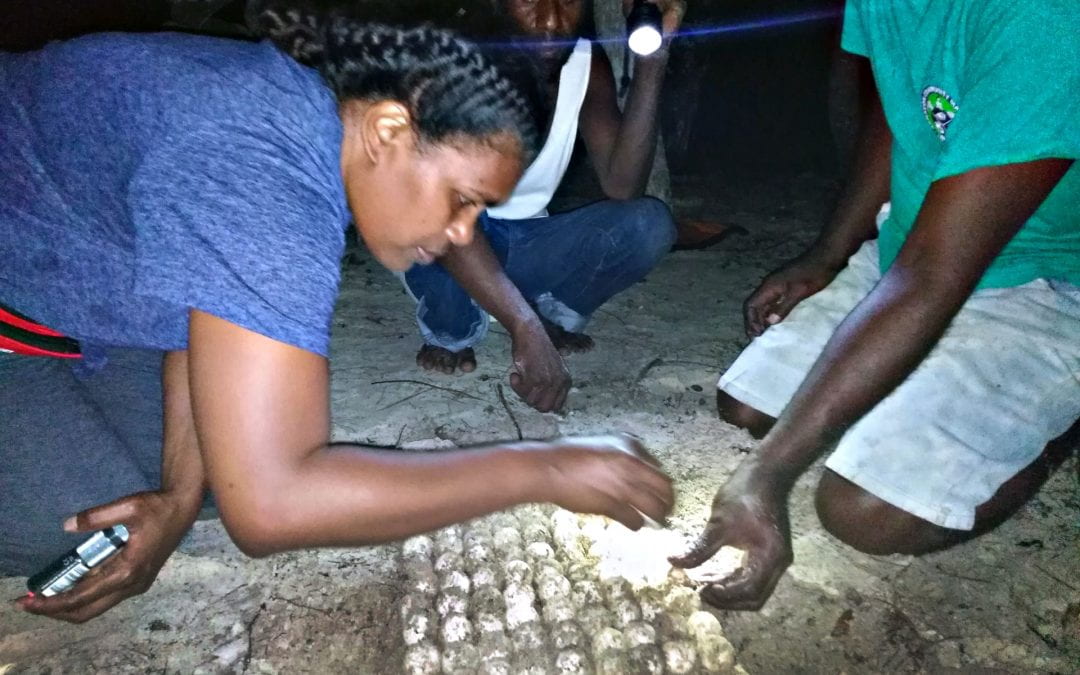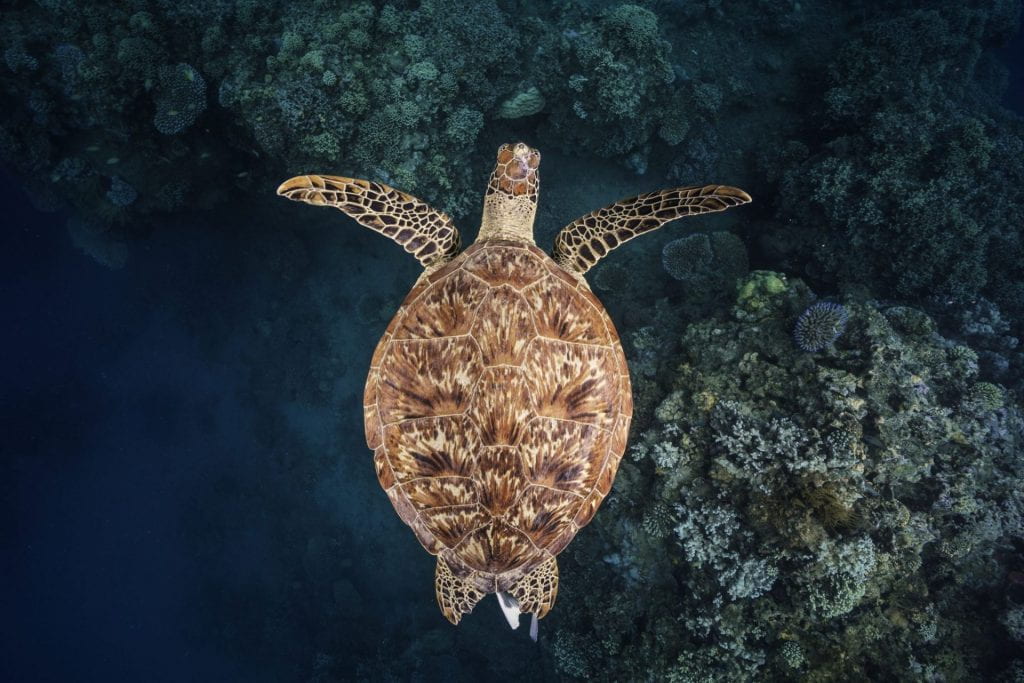(Above) UNE PhD Student Kristina Fidale assisting rangers to count turtle eggs.
“I find the interdisciplinary nature of investigation very enriching. I am intrigued learning that ordinary people can make extraordinary transformations that affect transboundary resource management.”
University of New England PhD Student Kristina Fidali’s research takes place in the dynamic overlap of culture and ecology. Kristina’s key objective in her research is to explore social ecological transformation specifically in coastal resource management in the Arnavon Community Marine Park (ACMP) – located in the Solomon Islands.
ACMP is a cooperatively managed marine conservation area involved in restoring the Hawksbill Turtle population. A myriad of issues such as the long history of extensive commercial overexploitation of the Hawksbill Turtle and fishery resources, tribal conflict, and now, persistent poaching, increasing encroachment from legal land-based development such as logging and mining into nearby islands; and climate change are some of the complex forces that puts the Hawksbill Turtle population and livelihood of nearby communities in a precarious existence.
Kristina’s research drives to the heart of this complex situation to explore how community transformation can occur and examine the importance of such change.
“When I think of transformation, I think of the work of blacksmiths who can forge strong iron metals into innovative new tools and or products. In cultural communities like those under ACMP, landownership, cultural practices, beliefs, and norms can be considered tough and difficult to change just like an iron metal is to a blacksmith without heating. A blacksmith who applies heat to an iron metal can forge it into a new shape and product. In my research I explore the heat-like factors that trigger social ecological transformation in ACMP and the impacts.”
Among the ’heat-like factors’ Kristina’s research examines include the near ecological collapse of the transboundary Hawksbill Turtles in the Arnavon waters. The nesting population of the Hawksbill Turtles nearly collapsed in the 1980s and triggered self-organisation in resource governance across national government, provincial government and three tribal communities’, supported by regional technical organisations and an international non-governmental organisation.
Other factors are conflicts and disputes among tribal communities and the government that must be ‘grabbed with both hands’ as Kristina explains, to facilitate reflection, self-organisation, learning and the emergence of new practices, worldviews and knowledge that supports innovation, collaboration and new governance arrangements.
In addition to researching the historical factors involved in social ecological transformation, Kristina also aims to understand the role of gender in preparing, navigating and institutionalising such transformations. The practical knowledge gained from this research can directly be applied to resilience management of social ecological systems of rural communities with theoretical contributions adopted for other forms of resource management and group-based transformation.
Originally from the Solomon Islands, Kristina’s familiarity with the geographic location is combined with over 8 years of work in the field of sustainable development.
“I see the need to better harness available resources for change in behaviour, practices and the way change is pursued. One area to help is to better understand the support system for preparing, navigating, and co-building transformation to inform the process of transformation for parties involved.”
Kristina’s PhD is supervised by UNE’s Dr. Nicolette Larder who approaches agri-food change from a cultural political economy perspective and has focused on food production systems both in urban and regional Australia and West Africa. Regarding Kristina’s research Dr. Larder shares,
“Kristina is a wonderful scholar to work with because she brings such inquisitiveness and openness to both the research task and to the topic of social and ecological change. There is a lot I could say about the importance of her work but one thing that comes to mind is her finding that gender roles and expectations in the communities she is working in have changed as result of the pressure brought to bare on long-standing socio-cultural systems as a result of changes to the ecological system, namely the turtle population. This is important in the context of the region she is working in but also advances thinking about socioecological transformations from a theoretical perspective. Kristina’s findings are already having an impact: she was awarded a funding from the United Nations to implement some change-projects based on her early research findings.”
For more information on the Arnavon Community Marine Park, visit the website. A documentary film on the conservation of the areas Hawksbill Turtle is available here. Learn more about World Oceans Day here.






